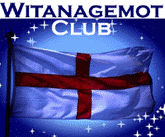TOKYO (AFP) - Japanese high-tech giant Toshiba on Tuesday announced its withdrawal from the high-definition DVD business, conceding defeat in a long-running format war with rival Sony.
Toshiba Corp. said that it aimed to end sales of its HD DVD machines by the end of March, clearing the way for the Blu-ray format developed by Sony Corp. and its partners to become the industry standard.
In a replay of the VHS-Betamax video cassette format war in the late 1970s, Japanese high-tech giants had been battling to set the industry standard in next-generation DVDs with two rival formats that are incompatible.
But Toshiba and its HD DVD partners suffered a series of heavy setbacks, with Hollywood titan Warner Brothers and US retail giant Wal-Mart both throwing their weight behind Blu-ray.
"We carefully assessed the long-term impact of continuing the so-called 'next-generation format war' and concluded that a swift decision will best help the market develop," said Toshiba chief executive Atsutoshi Nishida.
"While we are disappointed for the company and more importantly, for the consumer, the real mass market opportunity for high definition content remains untapped and Toshiba is both able and determined to use our talent, technology and intellectual property to make digital convergence a reality," he said.
As well as ending sales of stand alone high-definition machines, Toshiba said it would stop volume production of HD DVD disk drives for computers. It will also assess whether to keep making notebook PCs with integrated HD DVD drives.
But it will continue to provide after-sales support for people who have already bought its next-generation DVD players and recorders.
Blu-ray and HD DVD both offer cinematic-quality images and multimedia features.
But analysts say the availability of two different types of formats was confusing for consumers, who have been reluctant to buy one type of machine in case it becomes obsolete.
Toshiba said it would focus on more profitable business areas, such as NAND flash memory chips that are essential for portable music players and other consumer electronics.
The group announced Tuesday that it would jointly build a new semiconductor plant in Japan next year with its US partner SanDisk as part of efforts to cement their leading positions in NAND flash memory.









No comments:
Post a Comment